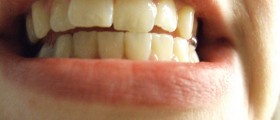Loading...
Loading...
Bed wetting can be very troublesome for young children. They can get embarrassed and in many cases this embarrassment can just elevate the problem. You have to understand that this is very common thing in children all around the world. So it is important not to punish your child for this because this can be solved in more appropriate manner. In many cases this will stop on its own after some time, but you could try to talk to your child constantly about this so he tries to focus on not doing it in bed. You could try to consult your doctor about this as well and see if there is no other underlying condition.
All the best,
Danella
Loading...
Our 10 year old was a bedwetter until age 9 when she stopped. As the school year was ending and there were tests in all her subjects the stress caused the bedwetting to return and after about 4 or 5 wet beds I went up into the attic and found the box with diapers and plastic pants that she had been wearing. I took a diaper and a pair f plastic pants and went to her room and sat down with her and showed her the diaper and plastic pants. She remembered wearing them and after some discussion it was agreed it might be good to wear them again. Until testing in school was all done. So that evening and for the next 10nighs the diapers and plastic pants were worn to bed, and she was wet in the mornings. For the next 4 mornings she woke up dry and the tests were done for the year. Diapers and plastic pants went back in the box and the box returned upstairs and nighttime dryness has continued. And so I believe that stress can cause bedwetting or in our case a return to it.
Loading...
Our health expert added few sentences to her medical answer.
Yes, stress can be a contributing factor to bedwetting in children. Bedwetting, also known as nocturnal enuresis, is a common issue that affects many children. While the exact causes can vary, stress and emotional factors are known to play a role in some cases.
When children experience stress, anxiety, or emotional upheaval, it can disrupt their normal sleep patterns and affect their bladder control during the night. Stressful events such as starting a new school, family changes, or other significant life transitions can trigger bedwetting episodes.
It's important to note that bedwetting can have various underlying causes, including physical factors such as delayed bladder maturation, hormonal imbalances, constipation, or urinary tract infections. It is often a combination of factors, and stress may exacerbate the issue in susceptible children.
If you suspect stress may be a contributing factor to your child's bedwetting, it's helpful to address and manage the underlying stressors. Encouraging open communication, providing emotional support, and creating a calm and supportive environment can help alleviate stress in children. Additionally, implementing relaxation techniques or activities before bedtime, such as reading, listening to soothing music, or practicing deep breathing exercises, can help promote a sense of calmness.
If bedwetting persists or causes significant distress for your child, it's advisable to consult a healthcare professional. They can evaluate your child's specific situation, rule out any underlying medical conditions, and provide appropriate guidance and treatment options. Bedwetting alarms, medication, and behavioral interventions are among the strategies that can be considered depending on the individual case.
Remember that each child is unique, and what works for one may not work for another. Patience, understanding, and support are key when addressing bedwetting in children.
